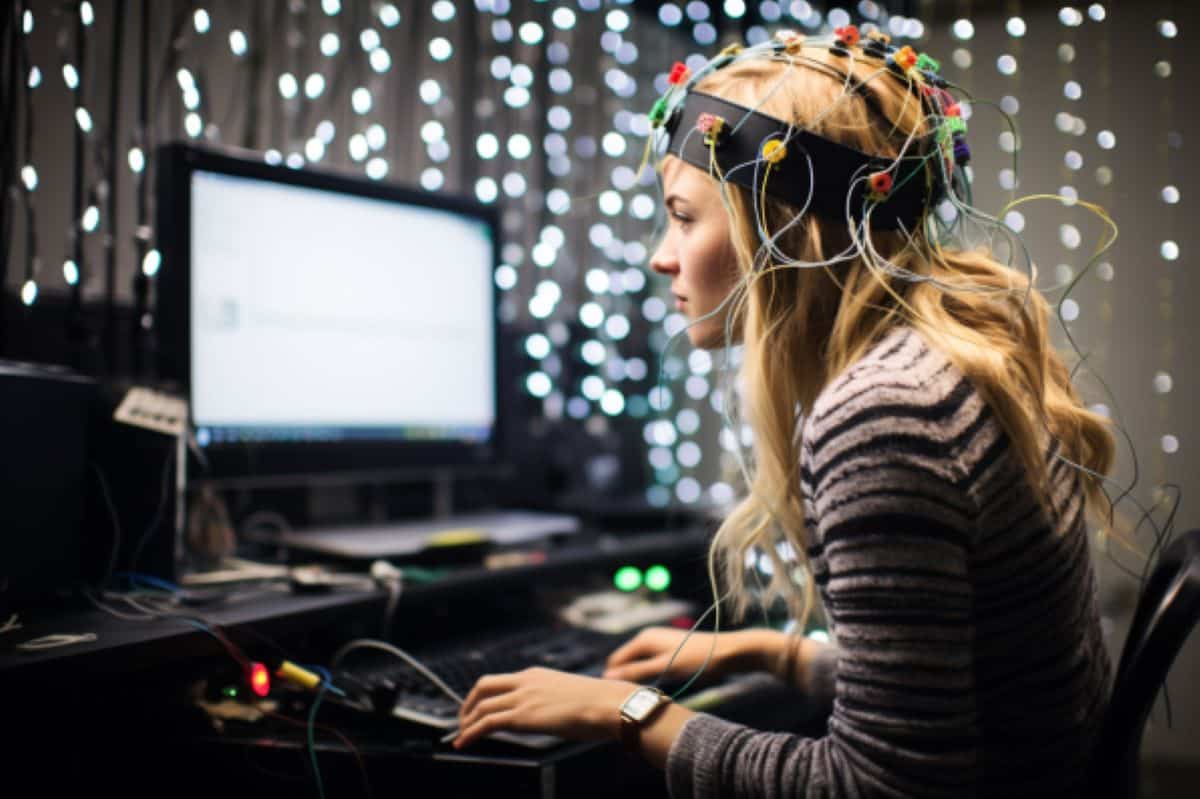Summary: Depression, a challenging condition to diagnose early, may now be detected more promptly using a simple 1-minute Electroencephalogram (EEG) test at home.
This study revealed a relationship between EEG results and the severity of participants’ depressive moods over several weeks. Phase resetting, where brain waves from different regions synchronize, correlated with mood intensity.
The discovery could revolutionize early depression detection and future treatments.
Key Facts:
- Phase resetting, or synchronization of brain waves from different regions, was observed to increase or decrease based on the severity of depressed moods.
- The study had participants measure their EEG daily for 1 minute at home over two to four weeks.
- This breakthrough offers an objective measure for depressed mood, heralding a potential shift in early depression detection and innovative treatment methods.
Source: University of Tsukuba
Depression is a common but serious mental disorder that requires early diagnosis and treatment; however, it is currently difficult to do so.
Electroencephalogram (EEG) is a test that easily measures electrical activity, and the equipment is relatively inexpensive, such that it may be used to promote the early detection and treatment of depression.

However, such a method has not been developed.
The participants of this study were instructed to measure their EEG for 1 min every day at home across two to four weeks to investigate its relationship to the intensity of their depressed mood.
The results demonstrated that the occurrence of phase resetting for many participants, in which brain waves from different brain regions synchronize, increased with high levels of depressed mood at certain frequencies but decreased at other frequencies.
These results indicate that changes in depressed mood can be objectively measured using EEG for 1 min in a resting state and are expected to facilitate the early detection of depression and the development of novel treatment in the future.
Funding: This work was supported by JSPS KAKENHI Grant Numbers JP1H03304 and JP23K17457 and by JKA through its promotion funds from KEIRIN RACE (2020M-117).
About this depression and neurotech research news
Author: KAMOSHITA Kimio
Source: University of Tsukuba
Contact: KAMOSHITA Kimio – University of Tsukuba
Image: The image is credited to Neuroscience News
Original Research: Open access.
“Brainwave activities reflecting depressed mood: a pilot study” by MORITA, Masahiko et al. Scientific Reports
Abstract
Brainwave activities reflecting depressed mood: a pilot study
Early diagnosis and treatment of depression are desirable but currently difficult due to a lack of established biomarkers. Although biomarkers for depression based on electroencephalogram (EEG) data have long been explored, most existing methods are thought to capture cognitive decline caused by depression and are unsuccessful in detecting signs of depression.
Here we report that some brainwave activities involving phase resetting reflect the depressed mood at the time, which can be easily monitored by measuring the resting EEG with eyes closed for 1 min with a few electrodes.
We instructed 10 participants (nine healthy and one diagnosed with depression, aged 18–34) to record their EEG for 14–26 days. We found that indicators of depressed mood were correlated with the occurrence frequency of EEG phase resetting.
For most participants, the correlation coefficients swung systematically between large positive and large negative values with respect to EEG frequency; however, the frequencies at which they were maximum or minimum differed among participants.
Although this study is in the pilot phase and needs further experimentation, the results are expected to lead to innovative biomarkers for early detection of depression and may contribute to a better understanding and treatment of depression.







